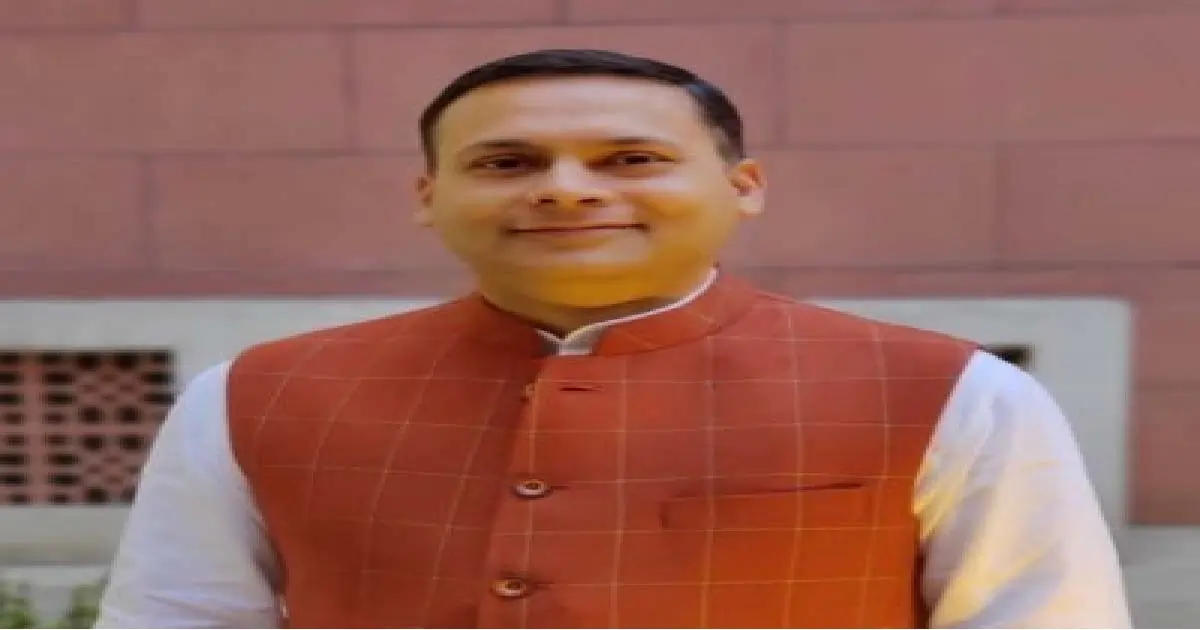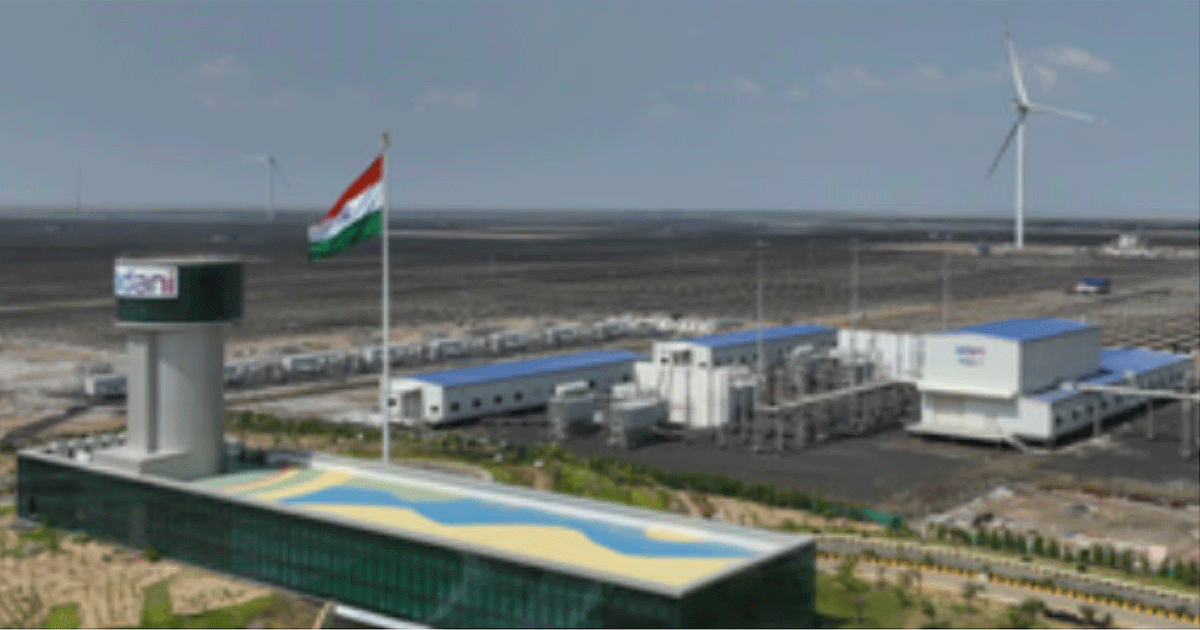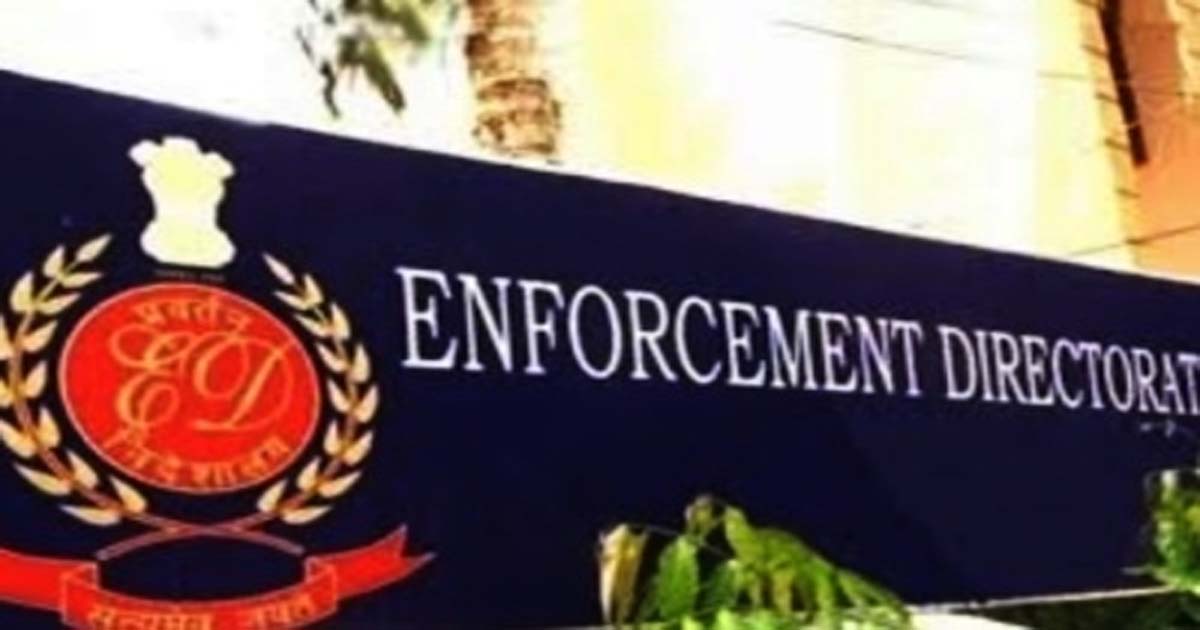National
BJP leader Amit Malviya explains key insertions in Waqf Bill

New Delhi, April 3: BJP leader Amit Malviya has elaborated on the implications of key insertions in the Waqf Amendment Bill, highlighting major changes aimed at protecting historical monuments and tribal land rights.
Taking to the social media platform X, Malviya shared a detailed explanation of the amendments.
“One of the significant insertions in the bill, Clause 3D, states: Any declaration or notification issued under this Act or under any previous Act in respect of waqf properties shall be void, if such property was a protected monument or protected area under the Ancient Monuments Preservation Act, 1904 or the Ancient Monuments and Archaeological Sites and Remains Act, 1958, at the time of such declaration or notification,” he wrote on X.
Explaining its impact, Malviya stated that ASI-protected monuments have now been excluded from the Waqf’s ambit.
He emphasised that since the Archaeological Survey of India (ASI) is merely a custodian, protected properties may not necessarily be government assets.
“Another key amendment, Clause 3E, reads: “Notwithstanding anything contained in this Act or any other law for the time being in force, no land belonging to members of Scheduled Tribes under the provisions of the Fifth Schedule or the Sixth Schedule to the Constitution shall be declared or deemed to be waqf property,” he said.
Malviya highlighted that this provision ensures the exclusion of tribal land from Waqf’s jurisdiction, thereby protecting the interests of tribal communities and preventing land encroachment.
He noted that this issue has been particularly pressing in states like Jharkhand and other tribal-dominated regions.
“This is a major step in protecting Tribal rights, benefiting Bengal’s Tribals and many others,” Malviya remarked.
The amendments in the Waqf Act have sparked discussions across political and social circles, with proponents asserting that they safeguard historical heritage and tribal communities.
Earlier, addressing the Lok Sabha on Wednesday, Union Home Minister Amit Shah, asserted that misconceptions about the Waqf (Amendment) Bill were being deliberately spread by certain parties to bolster their vote banks.
He said that the proposed legislation was in line with fulfilling the wishes of RJD chief Lalu Prasad, something the opposition had failed to do.
The Home Minister explained that the new law might not have been necessary had the Waqf (Amendment) Act of 2013, passed under the Congress-led UPA II government, not been rushed through just months before the 2014 Lok Sabha elections.
At that time, Lalu Prasad, whose party had been part of the ruling coalition before withdrawing and later offering support, had raised concerns about the state of Waqf properties.
Quoting Lalu Prasad, HM Amit Shah said: “We welcome the amendment bill presented by the government. I support the statements made by (BJP’s) Shahnawaz Hussain and others. Most of the land has been grabbed, be it government-owned or otherwise. People in the Waqf Board have sold all the prime land. In Patna, apartments have been constructed on Dak Bungalow property. There has been a lot of loot like this.”
The Home Minister also reiterated that the Waqf (Amendment) Bill, 2025, was not aimed at any particular religion and that the Congress and other opposition parties were spreading misinformation about the bill to serve their vote-bank politics.
Business
Adani Green Energy Sales Jump 42% In Q1, Operational RE Capacity Reaches 15.8 GW

Key Highlights:
– Energy sales rose 42 percent YoY to 10,479 million units in Q1 FY26.
– Operational RE capacity reached 15.8 GW, the highest in India.
– EBITDA surged 31 percent to Rs 3,108 crore, backed by new greenfield projects.
Ahmedabad: Adani Green Energy Ltd’s (AGEL) energy sales surged 42 per cent (year-on-year) in the April-June quarter (Q1 FY26) to 10,479 million units, as operational renewable energy (RE) capacity grew 45 per cent to 15.8 GW which continues to be India’s largest, the company said on Monday.
While revenue growth increased by 31 per cent (on-year) to Rs 3,312 crore, EBITDA also went up by 31 per cent to Rs 3,108 crore.
According to the Adani Group company, cash profit surged by 25 per cent (on-year) to Rs 1,744 crore in the quarter.
“During Q1 FY26, we added 1.6 GW of greenfield renewable energy capacity, bringing our total increase to 4.9 GW over the past year — an achievement unmatched in India’s transition toward clean energy,” said Ashish Khanna, CEO of Adani Green Energy.
“Our investments in the massive RE development at Khavda in Gujarat as well as other resource-rich sites are delivering results both in terms of superior operational performance and industry-best EBITDA margins,” he said, adding that the company is on track to achieve its 2030 target of 50 GW RE capacity — with at least 5 GW of hydro pumped storage along with battery storage.
Strong revenue, EBITDA, and cash profit growth are primarily backed by robust greenfield capacity addition, deployment of advanced RE technologies, superior plant performance and deployment of new capacities in resource-rich sites in Khavda (Gujarat) and Rajasthan.
“Further, battery storage is also a key part of our future strategy. We remain committed to supporting national energy transition and security ambitions as well as maintaining our ESG leadership, highlighted by our top rankings in the FTSE Russel ESG assessment and recognition at the Reuters Global Energy Transition Awards 2025,” Khanna noted.
AGEL has consistently generated electricity exceeding the overall annual commitment under the power purchase agreements (PPA). In Q1 FY26, AGEL’s PPA-based electricity generation was 31 per cent of the annual commitment.
The company is developing a massive 30 GW renewable energy plant at Khavda in Gujarat. This is spread over an area of 538 sq km, almost 5 times the city of Paris.
Crime
ED books 29 celebrities for endorsing betting apps

Hyderabad, July 10: The Enforcement Directorate has booked 29 celebrities in Telugu states for endorsing betting apps.
The central agency has filed an ECIR against 29 actors, influencers, and YouTubers for allegedly promoting illegal betting platforms, in violation of the Public Gambling Act, 1867.
The probe, under the Prevention of Money Laundering Act, has been taken up based on five FIRs filed in Telangana and Andhra Pradesh.
Film actors Vijay Deverakonda, Rana Daggubati, Prakash Raj, Nidhi Agarwal, Pranitha Subhash and Manchu Lakshmi, and Ananya Nagella are among those who have been booked by the ED.
The names of TV actors, TV hosts and social media influencers like Sreemukhi, Shyamala, and Varshini Sounderajan, Vasanthi Krishnan, Shoba Shetty, Amrutha Chowdary, Nayani Pavani, Neha Pathan, Pandu, Padhmavathi, Harsha Sai and Bayya Sunny Yadav also figure in the list.
Most of these celebrities were earlier booked by the Hyderabad and Cyberabad Police. FIRs were registered against them at Panjagutta, Miyapur, Cyberabad, Suryapet, and Visakhapatnam police stations.
The ED suspects endorsements of platforms like Junglee Rummy, A23, JeetWin, Parimatch, Lotus365, and others involved laundering of large sums through paid promotions.
The ECIR has been booked under BNS sections 318 (4), 112 r/w 49, Telangana Gaming Act sections 3, 3 (A), 4, IT Act 2000 and 2008 section 66D.
In March, Vijay Deverakonda, Rana Daggubati, Prakash Raj and others were booked by Cyberabad police for allegedly promoting betting apps. They, however, clarified that they are not promoting any illegal app.
While Rana Daggubati and Vijay Devarakonda stated that they endorsed only legally permitted online skill-based games, Prakash Raj said he did not renew a contract to promote an app in 2017 after realising that he should not have done it.
A case against six actors and 19 social media influencers was registered at the Miyapur Police Station of Cyberabad Commissionerate in March.
The police registered the case on a complaint by one Phanidra Sharma, a resident of Miyapur, who stated that he found several celebrities and social media influencers actively promoting illegal betting apps, websites and other platforms. The complainant said promotion of betting apps was causing harm to individuals and society by encouraging this addictive, short-term, risky money-making behaviour, leading to financial distress.
Crime
2002 import-export fraud case: CBI takes custody of Monika Kapoor in US

New Delhi, July 9: The Central Bureau of Investigation (CBI) has taken the custody of Monika Kapoor, an alleged economic offender, in the US and will bring her back to India, ending an over two-decade-long run from the law, officials said on Wednesday.
The development comes after Kapoor’s extradition from the US.
The CBI in a press release said the chase has ended after two decades “with the successful extradition of Fugitive Ms. Monika Kapoor, who is accused in a 2002 Import-Export fraud and was on run since then, from USA.”
According to the information provided by the Central agency, fugitive Monika Kapoor, Prop. of M/s Monika Overseas in conspiracy with her brothers, namely Rajan Khanna and Rajiv Khanna forged export documents viz. Shipping Bills, Invoices and Bank Certificates of Export and Realisation during the year 1998.
She obtained six Replenishment (Rep.) Licenses for the import of duty-free gold worth Rs 2.36 crore.
“In furtherance of the criminal conspiracy, they sold the said Rep. Licenses to M/s Deep Exports, Ahmedabad, on premium. M/s Deep Exports, Ahmedabad utilised the said licenses and imported duty-free gold, which caused a loss to the Government Exchequer to the extent of Rs 1.44 crore during the year 1998,” the press release mentioned.
The CBI, on the completion of the investigation, filed a charge sheet on March 31, 2004, against Monika Kapoor, Rajan Khanna, and Rajeev Khanna under sections 120-B r/w 420, 467, 468 and 471 of the IPC.
The Chief Metropolitan Magistrate, District Court Saket, New Delhi, vide order dated December 20, 2017, had convicted Rajan Khanna and Rajeev Khanna.
The CBI said the accused, Monika Kapoor, did not join the investigation and trial; she was declared a proclaimed offender by the trial court on February 13, 2006. The Ld. Trial Court had issued an open non-bailable warrant of arrest on April 26, 2010, and a Red Corner Notice was also issued against her.
A request for extradition was sent by the CBI on October 19, 2010, to the US authorities. Following intense coordination with authorities in the US, a CBI team travelled to the country to take custody of the fugitive.
This extradition marks a major breakthrough in the pursuit of justice and reiterates CBI’s commitment to bringing fugitives to face the law in India, irrespective of international boundaries.
The CBI team is returning to India with the fugitive. Monika Kapoor is being produced before the concerned court and will now face the trial.
The press release said that the CBI remains steadfast in its mission to combat economic crimes and will continue to pursue all legal avenues to ensure that the fugitives are brought to justice.
-

 Crime3 years ago
Crime3 years agoClass 10 student jumps to death in Jaipur
-

 Maharashtra1 year ago
Maharashtra1 year agoMumbai Local Train Update: Central Railway’s New Timetable Comes Into Effect; Check Full List Of Revised Timings & Stations
-

 Maharashtra1 year ago
Maharashtra1 year agoMumbai To Go Toll-Free Tonight! Maharashtra Govt Announces Complete Toll Waiver For Light Motor Vehicles At All 5 Entry Points Of City
-

 Maharashtra1 year ago
Maharashtra1 year agoFalse photo of Imtiaz Jaleel’s rally, exposing the fooling conspiracy
-

 National News1 year ago
National News1 year agoMinistry of Railways rolls out Special Drive 4.0 with focus on digitisation, cleanliness, inclusiveness and grievance redressal
-

 Maharashtra1 year ago
Maharashtra1 year agoMaharashtra Elections 2024: Mumbai Metro & BEST Services Extended Till Midnight On Voting Day
-

 National News1 year ago
National News1 year agoJ&K: 4 Jawans Killed, 28 Injured After Bus Carrying BSF Personnel For Poll Duty Falls Into Gorge In Budgam; Terrifying Visuals Surface
-

 Crime1 year ago
Crime1 year agoBaba Siddique Murder: Mumbai Police Unable To Get Lawrence Bishnoi Custody Due To Home Ministry Order, Says Report






















